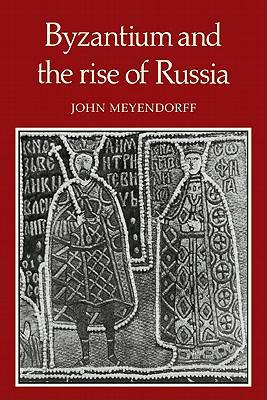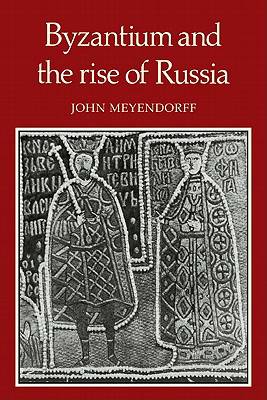
Je cadeautjes zeker op tijd in huis hebben voor de feestdagen? Kom langs in onze winkels en vind het perfecte geschenk!
- Afhalen na 1 uur in een winkel met voorraad
- Gratis thuislevering in België vanaf € 30
- Ruim aanbod met 7 miljoen producten
Je cadeautjes zeker op tijd in huis hebben voor de feestdagen? Kom langs in onze winkels en vind het perfecte geschenk!
- Afhalen na 1 uur in een winkel met voorraad
- Gratis thuislevering in België vanaf € 30
- Ruim aanbod met 7 miljoen producten
Zoeken
Byzantium and the Rise of Russia
A Study of Byzantino-Russian Relations in the Fourteenth Century
John Meyendorff
Paperback | Engels
€ 53,45
+ 106 punten
Omschrijving
The history of Russia is often considered as if that immense country had always been an isolated continent. However, at the time of its rise as a nation, it was politically a province of the Mongol Empire, whose capital was in Central Asia; and ecclesiastically, it was a dependency of the Orthodox Patriarchate of Constantinople, or Byzantium. This book describes the role of Byzantine (predominantly ecclesiastical) diplomacy in the emergence of Moscow as the capital of Russia in the fourteenth century, and the cultural, religious and political ties which connected the Northern periphery of the Byzantine Orthodox 'Commonwealth' with its centre in Constantinople. After 1370, the religious and monastic revival in Byzantium and the weakening of Mongol power provided an orientation to the policies of the Orthodox church in Russia: towards supra-national unity, spiritual and artistic achievements, and political reconciliation between principalities.
Specificaties
Betrokkenen
- Auteur(s):
- Uitgeverij:
Inhoud
- Aantal bladzijden:
- 350
- Taal:
- Engels
Eigenschappen
- Productcode (EAN):
- 9780521135337
- Verschijningsdatum:
- 24/06/2010
- Uitvoering:
- Paperback
- Formaat:
- Trade paperback (VS)
- Afmetingen:
- 152 mm x 229 mm
- Gewicht:
- 512 g

Alleen bij Standaard Boekhandel
+ 106 punten op je klantenkaart van Standaard Boekhandel
Beoordelingen
We publiceren alleen reviews die voldoen aan de voorwaarden voor reviews. Bekijk onze voorwaarden voor reviews.









